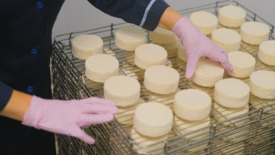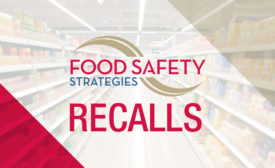Home » Keywords: » ready-to-eat foods
Items Tagged with 'ready-to-eat foods'
ARTICLES
Seek & destroy food safety practices in ready-to-eat food plants
When developing an effective seek and destory process, it is important to identify and define whether niche growth of micro-organisms occurs.
May 17, 2018
Report reveals MATS technology is solution to meeting global demand for healthy packaged food
New food preservation and processing technologies enable greater shelf stability without sacrificing taste or nutrition.
May 1, 2018
Never miss the latest news and trends driving the food safety industry
eNewsletter | Website | eMagazine
JOIN TODAY!Copyright ©2025. All Rights Reserved BNP Media.
Design, CMS, Hosting & Web Development :: ePublishing










